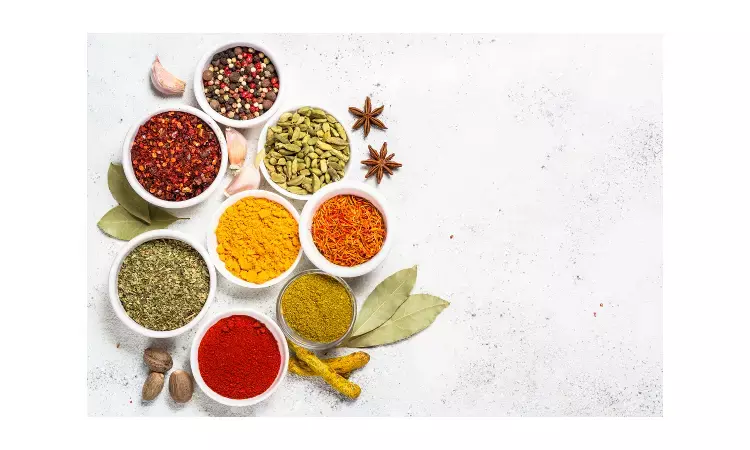- Home
- Medical news & Guidelines
- Anesthesiology
- Cardiology and CTVS
- Critical Care
- Dentistry
- Dermatology
- Diabetes and Endocrinology
- ENT
- Gastroenterology
- Medicine
- Nephrology
- Neurology
- Obstretics-Gynaecology
- Oncology
- Ophthalmology
- Orthopaedics
- Pediatrics-Neonatology
- Psychiatry
- Pulmonology
- Radiology
- Surgery
- Urology
- Laboratory Medicine
- Diet
- Nursing
- Paramedical
- Physiotherapy
- Health news
- Fact Check
- Bone Health Fact Check
- Brain Health Fact Check
- Cancer Related Fact Check
- Child Care Fact Check
- Dental and oral health fact check
- Diabetes and metabolic health fact check
- Diet and Nutrition Fact Check
- Eye and ENT Care Fact Check
- Fitness fact check
- Gut health fact check
- Heart health fact check
- Kidney health fact check
- Medical education fact check
- Men's health fact check
- Respiratory fact check
- Skin and hair care fact check
- Vaccine and Immunization fact check
- Women's health fact check
- AYUSH
- State News
- Andaman and Nicobar Islands
- Andhra Pradesh
- Arunachal Pradesh
- Assam
- Bihar
- Chandigarh
- Chattisgarh
- Dadra and Nagar Haveli
- Daman and Diu
- Delhi
- Goa
- Gujarat
- Haryana
- Himachal Pradesh
- Jammu & Kashmir
- Jharkhand
- Karnataka
- Kerala
- Ladakh
- Lakshadweep
- Madhya Pradesh
- Maharashtra
- Manipur
- Meghalaya
- Mizoram
- Nagaland
- Odisha
- Puducherry
- Punjab
- Rajasthan
- Sikkim
- Tamil Nadu
- Telangana
- Tripura
- Uttar Pradesh
- Uttrakhand
- West Bengal
- Medical Education
- Industry
Adding high culinary dosage of herbs and spices to meals may help lower blood pressure

Cardiometabolic disorders are a global burden on health system and their management is of utmost importance. Dietary guidelines in many countries including the United States, United Kingdom, and Australia recommend flavoring foods with herbs and spices as a strategy to reduce salt intake.
A randomized trial by Kristina S Petersen and team has revealed that Adding Herbs and spices to meals may help lower blood pressure.In US-style diet, addition of a relatively high culinary dosage of mixed herbs and spices of 6.6 g tended to improve 24-h blood pressure after 4 week, compared with lower dosages of 0.5 and 3.3 g, in adults at elevated risk of cardiometabolic diseases.
The findings of the study are published in The American Journal of Clinical Nutrition.
The objective of the study was to assess the effect of an average American diet containing herbs and spices at 0.5 (low-spice diet; LSD), 3.3 (moderate-spice diet; MSD), and 6.6 (high-spice diet; HSD) g • day-1 • 2100 kcal−1 on lipids and lipoproteins as well as other risk factors for cardiometabolic diseases in at-risk adults.
The study was a 3-period, randomized, crossover, controlled-feeding study with 71 participants was conducted at the Pennsylvania State University. Each diet was consumed for 4 week with a minimum 2-week washout period. Outcomes were assessed at baseline and the end of each diet period.
The results of the study were
• No difference between-diet effects were observed for LDL cholesterol, the primary outcome.
• Between-diet differences were observed for mean 24-h systolic (P = 0.02) and diastolic (P = 0.005) ambulatory blood pressure.
• The HSD lowered mean 24-h systolic blood pressure compared with the MSD (−1.9 mm Hg; 95% CI: −3.6, −0.2 mm Hg; P = 0.02); the difference between the HSD and LSD was not statistically significant (−1.6 mm Hg; 95% CI: −3.3, 0.04 mm Hg; P = 0.058).
• The HSD lowered mean 24-h diastolic blood pressure compared with the LSD (−1.5 mm Hg; 95% CI: −2.5, −0.4 mm Hg; P = 0.003).
• No differences were detected between the LSD and MSD. No between-diet effects were observed for clinic-measured blood pressure, markers of glycemia, or vascular function.
Petersen and team concluded that "In the context of a suboptimal US-style diet, addition of a relatively high culinary dosage of mixed herbs and spices (6.6 g • d−1 • 2100 kcal−1) tended to improve 24-h blood pressure after 4 week, compared with lower dosages (0.5 and 3.3 g • d−1 • 2100 kcal−1), in adults at elevated risk of cardiometabolic diseases.
Reference: Kristina S Petersen, Kristin M Davis, Connie J Rogers, David N Proctor, Sheila G West, Penny M Kris-Etherton, Herbs and spices at a relatively high culinary dosage improves 24-hour ambulatory blood pressure in adults at risk of cardiometabolic diseases: a randomized, crossover, controlled-feeding study, The American Journal of Clinical Nutrition, 2021;, nqab291, https://doi.org/10.1093/ajcn/nqab291
Medical Dialogues consists of a team of passionate medical/scientific writers, led by doctors and healthcare researchers. Our team efforts to bring you updated and timely news about the important happenings of the medical and healthcare sector. Our editorial team can be reached at editorial@medicaldialogues.in.
Dr Kamal Kant Kohli-MBBS, DTCD- a chest specialist with more than 30 years of practice and a flair for writing clinical articles, Dr Kamal Kant Kohli joined Medical Dialogues as a Chief Editor of Medical News. Besides writing articles, as an editor, he proofreads and verifies all the medical content published on Medical Dialogues including those coming from journals, studies,medical conferences,guidelines etc. Email: drkohli@medicaldialogues.in. Contact no. 011-43720751


